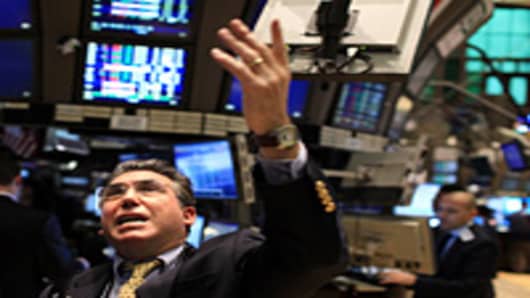Recent findings that much—or perhaps all—of the ability of some investors to outperform others raise the question—is the stock market unfair? And if it is unfair, what should be done about it?
The Brookings Institute recently completed a study which found that the returns to a passive investor in a diversified portfolio can differ strikingly over the long-term depending on the market conditions the occur over the lifetime of the investor. Similarly, findings by scholars studying the markets with an eye to the efficient market hypothesis suggest that there is little support for the idea that skill plays a large role in the success of actively managed funds. It seems to be mostly luck at work.
The large role chance plays in market success seems like a pretty bad thing to people who hold a particular view of the world in which winning should be connected with skillfulness. The fact that winning—regardless of whether it is attached to skillfulness—is unfailingly rewarded in financial markets, while skillfulness is only rewarded when attached to winning, looks like a flaw in the system.
Jeff Schwartz, an assistant professor of law at California Western School of Law in San Diego, has been writing on this at the Conglomerate:
For one, the arbitrary nature of investing potentially poses fairness concerns. Intuitively, it seems unjust that some should be rewarded by chance market moves while others are victims.
This intuition can be fleshed out by appealing to Rawls’s notion of the veil of ignorance. Behind this veil, those drafting the social contract do not know whether those whom they represent will be fortunate or unfortunate. As such, he posits that these individuals would design society so that those who benefit from morally arbitrary good fortune, such as being born with high intelligence or to a wealthy family, share with those who are less lucky.
This notion of egalitarianism can be applied to stock-market investing. As discussed last time, to a great extent, stock-market gains and losses similarly represent morally arbitrary good and ill fortune. Therefore, it seems that society would benefit to the extent that the chance gains and losses the market conveys are equitably distributed. This line of thinking seems to have particular merit in the retirement context, where an intuitive conception of what is just tells us that the amount of one’s contributions rather than arbitrary market swings should determine the balance of one’s retirement account.
I think Schwartz is making a very basic error here.
To begin with, the desire to see winning associated with skillfulness reflects a kind of moral primitivism. It is a harkening back to something like a heroic era of moral desert, where the great and the good were rewarded by a just cosmos. It looks at the market as if it were a race in the ancient Olympics—with laurels handed out according to an indisputable test of merit.
A more sophisticated and modern view of the question of justice in financial markets would start from the insight that the institution of financial markets themselves may be rational and just not based on the way they internally distribute awards, but on the overall good result produced. In this case, the good result would be a well-functioning economy in which capital is efficiently distributed.
What seems to be an unjust distribution of rewards from the outside, becomes a just distribution when viewed from within because that distribution is necessary to the proper functioning of the system. Within the system, the governing rules prescribe the way rewards are distributed and individuals must behave in order for the overall good of the system to be achieved. In financial markets, that means creating a system in which participants are incentivized by potential rewards to look for arbitrage opportunities in which to invest their funds.
There’s an irony here. Market participants benefit from the pursuit of arbitrage opportunities even though the rewards of these pursuits are really the product of luck. Changing the rules to redistribute gains evenly among the luck and the unlucky—which is to say, all gains—would diminish the incentive to pursue asset mispricings, which would result in less knowledge in the marketplace and more mispricing. Systemically encouraging mispricing would make capital allocations more inefficient, producing a society that is collectively less wealthy.
This is why I think Schwartz is wrong about the kind of financial system that would be chosen from behind a veil of ignorance. I’m confident the correct choice from behind the veil would be to produce a well-functioning financial system—even if that functions on illusory skill and rewards luck—rather than a poorly-functioning financial system that ameliorates the impact of luck.
To put it still differently, the justice of financial markets is rooted in whether individuals are rewarded not according to excellence—but whether individuals are given their due according well-crafted rules tailored to producing the overall goods at which financial markets aim. That is, whether the rewards accompanying the internal rules where by investors see gains when the value of their financial assets appreciates and see losses when the value of their financial assets depreciates.
The stock market is not unfair. It’s just that its fairness consists of something other than connecting skillfulness with winning. ___________________________________________________
Questions? Comments? Email us atNetNet@cnbc.com
Follow John on Twitter @ twitter.com/Carney
Follow NetNet on Twitter @ twitter.com/CNBCnetnet
Facebook us @ www.facebook.com/NetNetCNBC



